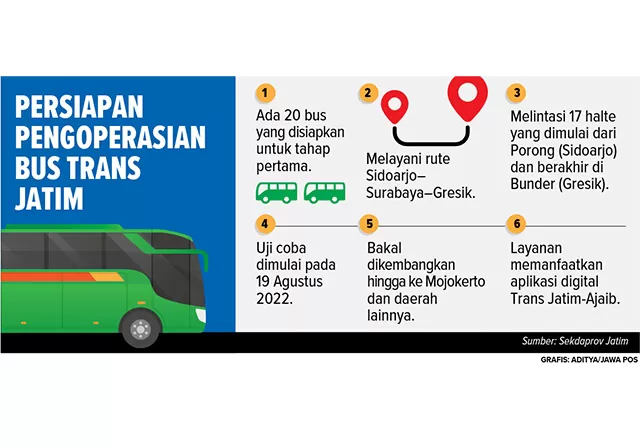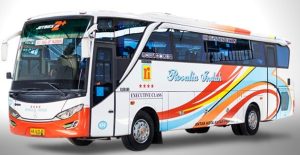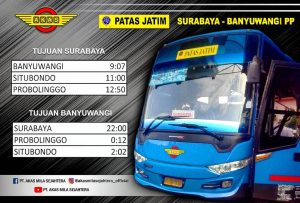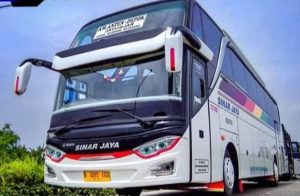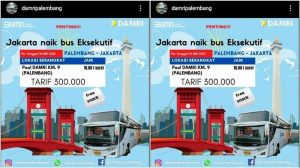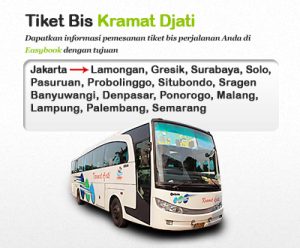Step 3: Continuing with the next 11-15 headings and subheadings
Tips for Booking Bus Tickets Efficiently
Booking bus tickets in East Java can sometimes be overwhelming due to the large number of routes, bus companies, and service types available. However, there are several strategies that can help you secure the best deals and ensure a smooth travel experience. Below are some practical tips for booking bus tickets efficiently:
-
Book in Advance: While it might seem tempting to wait until the last minute, booking bus tickets in advance can save you both time and money. Especially during peak seasons like school holidays or major festivals, buses can sell out quickly, and prices tend to rise closer to departure dates. By securing your ticket early, you ensure that you get a seat on your preferred bus, at the best price.
-
Use Online Platforms and Apps: As mentioned earlier, using digital platforms such as Traveloka, RedBus, or Tokopedia offers convenience and transparency when booking bus tickets. These platforms not only allow you to check schedules, but they also compare prices across different bus companies, helping you find the most affordable option.
-
Compare Prices and Routes: Different bus companies and services offer varying levels of comfort and pricing. For instance, an economy bus might be much cheaper than an executive or VIP bus, but the comfort level will be lower. If you don’t mind a more basic travel experience, opt for the economy class to save money. On the other hand, if comfort is your priority, go for a VIP or executive bus, especially on long-haul journeys.
-
Check for Discounts and Promo Codes: Many online booking platforms and bus companies offer discounts, cashback deals, or promo codes for first-time users or during festive seasons. Always check for discounts or special promotions before finalizing your ticket purchase. You can also sign up for newsletters or follow bus companies on social media to stay updated on their latest offers.
-
Be Flexible with Travel Dates: If your schedule allows, being flexible with your travel dates can also help you save money. Prices can fluctuate depending on the day of the week or time of year. For example, traveling on weekdays instead of weekends or avoiding public holidays can result in cheaper tickets and less crowded buses.
-
Double-Check Departure and Arrival Times: Make sure to confirm your departure and arrival times when booking. It’s easy to get mixed up with different schedules, especially when using online platforms. Double-checking these details will help you avoid missing your bus or being caught in unexpected delays.
By following these tips, you can make the most of your bus booking experience, ensuring that you get the best possible deal, a comfortable ride, and timely arrival at your destination.
Schedules and Frequency of Buses in East Java
When planning your journey, understanding the schedule and frequency of buses is crucial. The availability of buses on different routes can vary based on the time of day, demand, and the season. Here’s a breakdown of what you can expect regarding schedules and frequency of buses across East Java:
-
Daily Frequency of Buses: Major routes, such as Surabaya to Malang, Surabaya to Banyuwangi, and Surabaya to Jember, typically have buses departing several times a day. On these popular routes, buses run frequently, often at intervals of 30 minutes to 1 hour during peak hours, ensuring that travelers can find a bus at almost any time of the day. For less frequented routes, buses may run fewer times daily, usually in the morning and afternoon.
-
Peak and Off-Peak Travel Times: Bus schedules tend to be more flexible during off-peak times, but they can become very crowded during rush hours or public holidays. Peak times, such as during the Lebaran holiday, school vacations, and other regional festivities, see a surge in the number of travelers. During these times, it’s not unusual for buses to be fully booked, so it’s advisable to plan ahead and book tickets in advance. Off-peak travel, on the other hand, usually results in more relaxed travel conditions and often lower ticket prices.
-
Timetables for Long-Distance Routes: For long-distance bus routes, such as Surabaya to Banyuwangi, the departure times are usually set to accommodate the long travel time. Some buses on these routes depart in the morning and others in the late afternoon, depending on how long the trip takes. It’s important to check the exact schedule when booking your ticket, as departure times can vary by bus company and route.
-
Real-Time Scheduling Information: With the rise of digital platforms, travelers can access real-time information about bus schedules. Online booking websites and mobile apps provide up-to-the-minute updates on departure and arrival times, helping travelers stay informed in case of delays or cancellations.
Planning your travel around bus schedules will help you avoid long waits and ensure that you arrive at your destination on time. If you’re traveling during peak periods, make sure to arrive at the terminal earlier than usual to secure your seat.
Managing Travel During Peak Seasons
Traveling during peak seasons, such as public holidays, school breaks, and major local events, can pose challenges when it comes to bus travel. However, with some proactive planning and smart strategies, you can still navigate these busy times smoothly. Here’s how you can manage your bus travel during peak seasons in East Java:
-
Book Tickets Early: One of the most important strategies when traveling during peak seasons is to book your tickets as early as possible. High demand during these times often leads to buses selling out quickly. Online platforms make it easy to book well in advance, and some even allow you to make reservations months ahead of your departure date.
-
Be Flexible with Travel Dates and Times: If possible, try to adjust your travel dates or choose less popular hours. For example, avoid traveling on the day of a major holiday or festival. Departing early in the morning or later in the evening can sometimes help you avoid the largest crowds and higher ticket prices.
-
Consider Alternative Routes: If your desired route is fully booked, look into alternative routes or departure points. For instance, if you’re traveling from Surabaya to Malang and the direct route is sold out, you might consider a connecting route with a stopover in a smaller town.
-
Plan for Delays: During peak seasons, traffic congestion can cause delays on bus routes. Always factor in extra time for your journey, especially if you have connecting travel plans, such as catching a flight or ferry. Make sure you keep your phone charged and have a backup plan in case you miss your bus.
-
Travel During Non-Holiday Periods: If you have the flexibility to travel outside of peak seasons, try to schedule your trip during non-holiday periods. Buses are less crowded, tickets are often cheaper, and you can enjoy a more relaxed travel experience.
By planning ahead and considering these strategies, you can avoid the stress of traveling during busy times and ensure a smooth and enjoyable journey.
Safety and Security on Bus Routes
Traveling by bus is generally safe, but it’s always important to be aware of the safety measures in place to protect passengers. Both bus operators and passengers have roles to play in ensuring a secure travel experience. Here’s how safety is maintained on East Java’s bus routes:
-
Safety Standards for Bus Companies: Reputable bus companies in East Java adhere to national and regional safety standards. These include regular vehicle inspections, ensuring that buses are roadworthy and in good condition. Buses are checked for mechanical issues, tire health, and safety equipment, such as seat belts, fire extinguishers, and emergency exits.
-
Qualified Drivers: Bus drivers undergo training and certification to ensure that they are capable of handling long-haul routes safely. They are trained in road safety, emergency response, and passenger management. Many bus companies also implement strict regulations regarding driving hours, ensuring that drivers get the necessary rest to avoid fatigue.
-
Passenger Safety Protocols: Bus companies also have protocols in place to ensure the safety of passengers during the trip. This includes monitoring the road conditions, offering emergency services in case of accidents, and having clear evacuation procedures. On some buses, security staff may be present, particularly on longer routes.
-
Emergency Measures and Protocols: In case of emergencies such as accidents, fire, or severe weather, bus companies are equipped with emergency plans. Passengers are typically briefed on safety measures at the start of the journey. In addition, many buses are fitted with GPS tracking systems, which help to locate the bus in case of an emergency.
How Bus Operators Ensure Safe Travel
Bus operators in East Java take extensive measures to ensure that every passenger has a safe and secure journey. This includes a range of practices designed to maintain vehicle safety, driver competence, and passenger well-being throughout the trip. Here’s how bus operators ensure safe travel:
-
Regular Bus Inspections and Maintenance: Bus companies carry out routine inspections and preventive maintenance to ensure their vehicles are in top condition. This includes checking brakes, tires, engines, and the overall structural integrity of the buses. Regular maintenance schedules help prevent breakdowns and mechanical failures during the trip.
-
Driver Training and Monitoring: Drivers are trained to handle various driving conditions, including challenging road conditions in mountainous or rural areas. They are also trained in customer service, first aid, and managing any disruptions that may arise. Some operators have onboard cameras to monitor driver behavior and ensure that they follow safety protocols.
-
Passenger Safety Guidelines: In addition to driver training, passengers are informed about safety rules and procedures. These guidelines often include instructions on seatbelt use (if available), emergency exit locations, and safety equipment. Bus operators may provide information via signs, announcements, or onboard personnel.
-
Security Measures on Board: Larger buses and luxury services often employ security personnel, especially on long-distance routes. This enhances passenger security by deterring theft and ensuring that any disturbances are promptly handled. Some bus companies also have CCTV cameras inside the bus for added surveillance.

